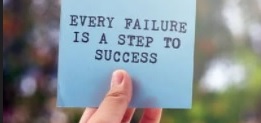Failure Fiction - Why to empower failure culture in science?
DOI:
https://doi.org/10.60144/v3i.2022.62Keywords:
Open Science, Ciência Aberta, Failure in Science, Fracasso na ciência, Reproducible research, Pesquisa reprodutívelAbstract
Let's have a journey to a scientific world where there is no failure, no mistakes, so there is no need for a failure culture at all. Science fiction shows us how it is done. Hari Sheldon, psychohistorian; he knows how to save civilization. He has a plan and knows it all. In Isaac Asimov's Foundation - Trilogy scientists can save the wisdom of the known world, beware the citizens of the galactic empire from loss of its knowledge and so from total disaster. It is tempting to reach a point of prediction where you can avoid disasters, where a failure becomes a mere fiction.
Downloads
References
Kolata, G. & Mueller, B. (2022) Halting Progress and Happy Accidents: How mRNA Vaccines Were Made. The New York Times, retrieved on the 15rd of February 2022 from:https://www.nytimes.com/2022/01/15/health/mrna-vaccine.html
Plant, S.(1997) Zeros and Ones. Digital Woman + The New Technoculture. London: Fourth Estate. p. 163-164
Sandrini, M.; Katz, K. (2022) Exploring the many facets of Failure in Academia. Social Science Works, https://socialscienceworks.org/exploring-the-many-facets-of-failure-in-academia/
Schneck, A. (2017) Examining publication bias—a simulation-based evaluation of statistical tests on publication bias. PeerJ, 5:e4115; DOI: 10.7717/peerj.4115

Published
How to Cite
License
Copyright (c) 2022 Mafalda Sandrini, Kata Katz

This work is licensed under a Creative Commons Attribution 4.0 International License.
Qualquer usuário tem direito de:
- Compartilhar — copiar, baixar, imprimir ou redistribuir o material em qualquer suporte ou formato
- Adaptar — remixar, transformar, e criar a partir do material para qualquer fim, mesmo que comercial.
De acordo com os seguintes termos:
- Atribuição — Você deve dar o crédito apropriado, prover um link para a licença e indicar se mudanças foram feitas. Você deve fazê-lo em qualquer circunstância razoável, mas de maneira alguma que sugira ao licenciante a apoiar você ou o seu uso.
- Sem restrições adicionais — Você não pode aplicar termos jurídicos ou medidas de caráter tecnológico que restrinjam legalmente outros de fazerem algo que a licença permita.














